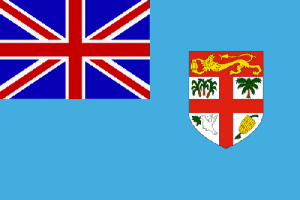 This page summarizes cases raised with Fiji by the Special Rapporteur between May 1, 2011, (when the Special Rapporteur took up his functions) and February 28, 2017 (the date of the last public release of communications). Communications are released to the public once per year. This page also contains observations on these communications and on responses received from Fiji.
This page summarizes cases raised with Fiji by the Special Rapporteur between May 1, 2011, (when the Special Rapporteur took up his functions) and February 28, 2017 (the date of the last public release of communications). Communications are released to the public once per year. This page also contains observations on these communications and on responses received from Fiji.
Communications and observations are divided into sections based upon which observation report they originally appeared.
Each communication is referenced as urgent appeal (UA), allegation letter (AL), joint urgent appeal (JUA) and joint allegation letter (JAL) – the hyperlinks lead to these documents. This is followed by the date the communication was issued, as well as the case number and the State reply (also hyperlinked if available).
Summaries and communications are published only in the language of submission (in the case of Fiji, English).
Observations
The Special Rapporteur regrets that the Government of Fiji did not respond to any of his communications. He considers responses to his communications as an important part of the cooperation of Governments with his mandate, and urges the authorities to provide detailed answers to all the concerns raised in his communications.
The Special Rapporteur remains very preoccupied by the Decree entitled “Essential National Industries (Employment) Decree”, which put serious restrictions on the operation of unions in the country, and he recommends to the Government to revise thoroughly the aforementioned decree.
The Special Rapporteur urges the authorities to ensure that no individual is criminalised for the peaceful exercise of his fundamental freedoms. He recommends for the Government to put in place an enabling and safe environment that is conducive to the free expression of unionists, and to ensure that they are not subjected to any acts of harassment or intimidation in relation to the exercise of their fundamental freedoms. A thorough and independent investigation over any allegations of torture or ill treatment should be conducted, those responsible should be held accountable, and victims should be provided with full redress.
The Special Rapporteur refers to Human Rights Council resolution 15/21, and in particular operative paragraph 1 that “[c]alls upon States to respect and fully protect the rights of all individuals to assemble peacefully and associate freely, including in the context of elections, and including persons espousing minority or dissenting views or beliefs, human rights defenders, trade unionists and others, including migrants, seeking to exercise or to promote these rights, and to take all necessary measures to ensure that any restrictions on the free exercise of the rights to freedom of peaceful assembly and of association are in accordance with their obligations under international human rights law”.
The Special Rapporteur reminds the Government of Fiji of his country visit request sent in September 2011, to which a response is yet to be received. In this connection, OP6 of resolution 15/21 states that the “Human Rights Council… [c]alls upon States to cooperate fully with and assist the Special Rapporteur in the performance of his or her tasks, to provide all necessary information requested by him or her, … and to consider favourably his or her requests for visits”.
Observations
The Special Rapporteur regrets that the Government of Fiji did not respond to any of the communications he has sent since the beginning of his tenure. He considers responses to his communications as an important part of the cooperation of Governments with his mandate, and urges the authorities to provide detailed answers to all the concerns raised in his communications.
The Special Rapporteur urges again the authorities to ensure that no individual is criminalised for the peaceful exercise of his fundamental freedoms. He recommends that the Government put in place an enabling and safe environment allowing individuals to exercise their legitimate freedoms without undue hindrances. A thorough and independent investigation over any allegations of human rights violations or abuses should be conducted, those responsible should be held accountable, and victims should be provided with full redress.
The Special Rapporteur refers to Human Rights Council resolution 21/16, and in particular operative paragraph 1 that “[r]eminds States of their obligation to respect and fully protect the rights of all individuals to assemble peacefully and associate freely, online as well as offline, including in the context of elections, and including persons espousing minority or dissenting views or beliefs, human rights defenders, trade unionists and others, including migrants, seeking to exercise or to promote these rights, and to take all necessary measures to ensure that any restrictions on the free exercise of the rights to freedom of peaceful assembly and of association are in accordance with their obligations under international human rights law”.
The Special Rapporteur reminds again the Government of Fiji of his country visit request sent in September 2011, to which a response is yet to be received. In this connection, OP6 of resolution 15/21 states that the “Human Rights Council… [c]alls upon States to cooperate fully with and assist the Special Rapporteur in the performance of his or her tasks, to provide all necessary information requested by him or her, … and to consider favourably his or her requests for visits”.
None
None
None
None
For the full reports, containing communications, replies and observations for all countries, see the following links:
Report A/HRC/20/27/Add.3: May 1, 2011 to March 15, 2012
Report A/HRC/23/39/Add.2: March 16, 2012 to February 28, 2013
Report A/HRC/26/29/Add.1: March 1, 2013 to February 28, 2014
Report A/HRC/29/25/Add.3: March 1, 2014 to February 28, 2015
Report A/HRC/32/36/Add.3: March 1, 2015 to February 28, 2016
Report A/HRC/35/28/Add.4: March 1, 2016 to February 28, 2017